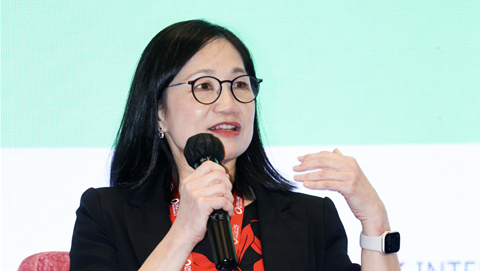Bristlecone, a Mahindra Group company and a supply chain service provider, has unified business applications and processes to align its internal supply chain with the customer journey.
This has helped the company connect demand planning with forecasting, enabling efficient talent sourcing and timely fulfillment of customer needs.
Bristlecone’s head of business operations & insights and IT, Pankaj Dontamsetty, told iTnews Asia that the company assessed multiple vendors after analysing internal needs across key business functions.
He said the company operated its Human Capital Management (HCM) on a SaaS platform with the Project Portfolio Management (PPM) - including project management, timesheets, expenses, and resource management - running on an on-premises system.
Managing multiple platforms created operational silos and increased complexity.
“We replaced these applications by bringing Oracle Fusion Cloud as the single platform for HCM and PPM. This reduced the number of business applications, making enterprise app landscape efficient and scalable,” said Dontamsetty.
The shift has optimised the total cost of ownership (TCO) by eliminating redundancies and improving system efficiency, he added.
Creating an end-to-end ecosystem
Bristlecone integrated Oracle HCM and PPM with its Customer Relationship Management (CRM) and financial platforms, creating an end-to-end digital ecosystem that connects sales, resource planning, and financial management.
Dontamsetty said that the company now gets full visibility across demand forecasting, planning, and fulfillment.
“This integration enables real-time insights into data, helping leadership to make informed decisions across departments. Additionally, the sales and fulfillment teams can now better plan for demand changes, as both teams share visibility of the sales pipeline and staffing readiness,” said Dontamsetty.
This ensures that Bristlecone can manage and fulfill demand efficiently, ultimately improving its sales commitments to customers.
With Oracle’s solution, the onboarding process for new hires has been digitised, making it simpler for employees and HR, while strengthening compliance.
The self-service tools for employees and managers provide access to information, improving decision-making, Dontamsetty said.
Connecting Oracle HCM with external job portals has expanded the talent pool and accelerated hiring, he added.
Digitalising the journeys for travel requests or management improved the productivity of the travel desk and aligning with audit requirements
“The integration of systems, data, and processes allowed us to drive enterprise-wide automation in the individual process areas, including sales, recruitment, and resource management, thereby enhancing process efficiency and supporting better decision-making,” said Dontamsetty.
Not rushing into AI
Talking about how Bristlecone’s operational improvements have contributed to its goals, particularly in enabling AI-first supply chain transformations, Dontamsetty said the company’s preference is to take a measured approach to AI adoption.
"One thing that was clear within our management team was the importance of not rushing into AI, whether it's traditional AI or generative AI. We understood that we needed to reach a certain level of maturity before embracing AI for specific outcomes,” explained Dontamsetty.
This maturity is built through establishing a strong digital foundation, streamlining processes across functional areas, and harmonising the end-to-end supply chain.
According to Dontamsetty, the decision to hold off on AI adoption until the company had achieved this level of readiness, was a difficult but a right one.
He said, "Looking back, I think it was the right decision. Now, we’re in a strong position to adopt, implement, and scale AI across our operations, and over 50 potential AI use cases have already been identified.”
With systems becoming integrated and automated, employees are freed from manual tasks and can focus on higher-value responsibilities.
Dontamsetty added that two digital transformation initiatives are currently at play. First, the company is implementing AI-driven operational excellence, leveraging AI, ML, and generative AI to enhance efficiency and productivity across functions and the integrated supply chain.
Additionally, it is advancing predictive and proactive supply chain management, shifting from reactive insights to AI-powered forecasting for better decision-making and adaptability.
Need to respond to external disruptions
Further discussing the impact of cloud computing, AI, and advanced analytics, Dontamsetty emphasised how these technologies are not just enhancing efficiency but fundamentally reshaping supply chain operations.
Their ability to improve agility, scalability, and predictive decision-making has become increasingly critical in today’s dynamic business landscape.
One key driver behind this transformation is the need to respond effectively to external disruptions.
Dontamsetty cited how the pandemic highlighted the role of supply chains, and where speed was essential, agility is even more crucial in navigating macroeconomic and geopolitical shifts.
The real-time visibility powered by advanced technologies, organisations can help the company anticipate disruptions, adapt quickly, and make more informed decisions, strengthening overall resilience.

Business transformation, which once took years, now happens within months. As a result, companies must adopt shorter strategic cycles while maintaining long-term vision. To stay relevant, companies must not only gather knowledge on processes, people, and trends but also connect insights to make informed, forward-looking decisions.
- Pankaj Dontamsetty, Head of business operations & insights and IT, Bristlecone
AI-driven predictive capabilities will be vital for anticipating challenges and making timely course corrections, said Dontamsetty.
At the supply chain level, end-to-end visibility ensures that all stakeholders can make data-driven decisions, driving overall efficiency, he added.

.jpeg&w=800&c=0&s=1)








